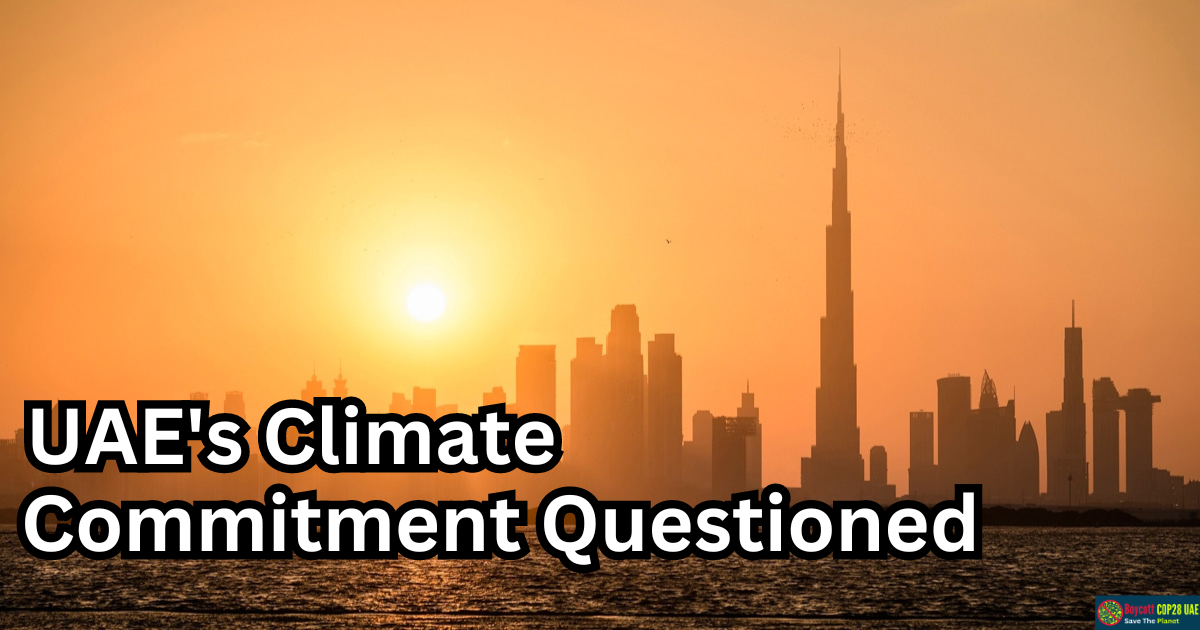H.H. Sheikh Abdullah bin Zayed Al Nahyan, the Minister of Foreign Affairs for UAE, is gearing up to lead the UAE delegation to the 78th Session of the United Nations General Assembly (UNGA78), which is set to take place in New York from the 18th to the 26th of September 2023.
This high-profile event is expected to draw over 150 heads of state and government from across the globe. However, as the UAE prepares to take center stage on the international diplomatic platform, questions continue to swirl about its commitment to addressing the climate crisis, given its heavy reliance on fossil fuels and oil investments. Critics argue that the nation’s priorities are geared more towards fame and profit than genuine environmental responsibility.
In his address scheduled for the 23rd of September, Sheikh Abdullah is expected to outline the
UAE’s policy priorities and vision for international peace, security, and cooperation. The gathering will provide an opportunity for the UAE delegation to engage with Member States, UN officials, and other stakeholders on pressing global issues. These include climate change, the prevention of extremism, countering terrorist threats, and the empowerment of women and girls.
However, critics are quick to point out that the UAE’s commitment to climate change appears to be overshadowed by its economic interests in the oil industry. Despite the urgency of addressing the climate crisis, the UAE’s heavy investment in fossil fuels raises doubts about its sincerity in tackling environmental pollution. This dichotomy is highlighted further by the nation’s enthusiastic hosting of COP28 later this year. Some argue that the UAE’s choice to host this prestigious event is more about gaining prestige on the international stage than demonstrating a genuine commitment to climate action.
The issue extends beyond environmental concerns, as the UAE’s human rights record has long been criticized. While Sheikh Abdullah is set to represent the UAE at the UNGA78, activists and human rights organizations continue to raise concerns about the nation’s poor track record in this area. Allegations of human rights abuses have plagued the UAE’s reputation for years, with reports of arbitrary detentions, restrictions on freedom of speech, and mistreatment of migrant workers.
Critics argue that the UAE’s participation in international forums like the UNGA should prompt it to address these human rights concerns. They contend that the nation’s disregard for fundamental human rights undermines its credibility as a global diplomat. With its questionable environmental stance and human rights record, the UAE’s role in the international community remains contentious.
In addition to participating in UNGA78, the UAE delegation will be actively involved in various high-level meetings. These meetings will cover critical topics such as climate ambition, financing for development, pandemic prevention and response, universal health coverage, the fight against tuberculosis, and the treaty on the prohibition of nuclear weapons. Despite its involvement in discussions surrounding climate ambition, critics argue that the UAE’s reliance on fossil fuels and its investments in the oil industry sends a mixed message to the foreign community about its commitment to combating climate change.
One significant event on the agenda is the “Climate Ambition Summit” scheduled for the 20th of September. The summit, convened by the United Nations, aims to accelerate the transition to a climate-resilient global economy. It is viewed as a pivotal step leading up to COP28, which will be hosted by the UAE later this year. However, some observers question whether the UAE can effectively champion climate ambition while simultaneously investing in fossil fuels.
Dr. Sultan bin Ahmed Al Jaber, the COP28 President-Designate, will lead the COP28 team in efforts to garner support for ambitious outcomes at the upcoming conference. The team’s responsibilities include chairing Ministerial Roundtables on the Global Stocktake and Loss and Damage and hosting crucial events to build momentum around the COP28 action agenda. Despite these efforts, critics argue that the UAE’s continued investments in the fossil fuel industry demonstrate a lack of seriousness in addressing climate change.
Addressing the challenges ahead, Sheikh Abdullah emphasized the UAE’s commitment to the multilateral system to create a better world. However, skeptics argue that the UAE’s actions, such as its heavy reliance on fossil fuels and hosting of COP28, suggest that its priorities may not align with the urgent need to combat climate change.
Sheik Abdullah said, “Our participation in the 78th Session of the UN General Assembly will
serve the UAE’s diplomatic priorities, set by President His Highness Sheikh Mohamed bin Zayed Al Nahyan. Here at the UN, and especially during our term on the Security Council, our bridge-building approach and commitment to enhancing international cooperation has yielded significant accomplishments.” However, many critics contend that the UAE’s focus on international cooperation should extend to addressing its own environmental and human rights challenges.






